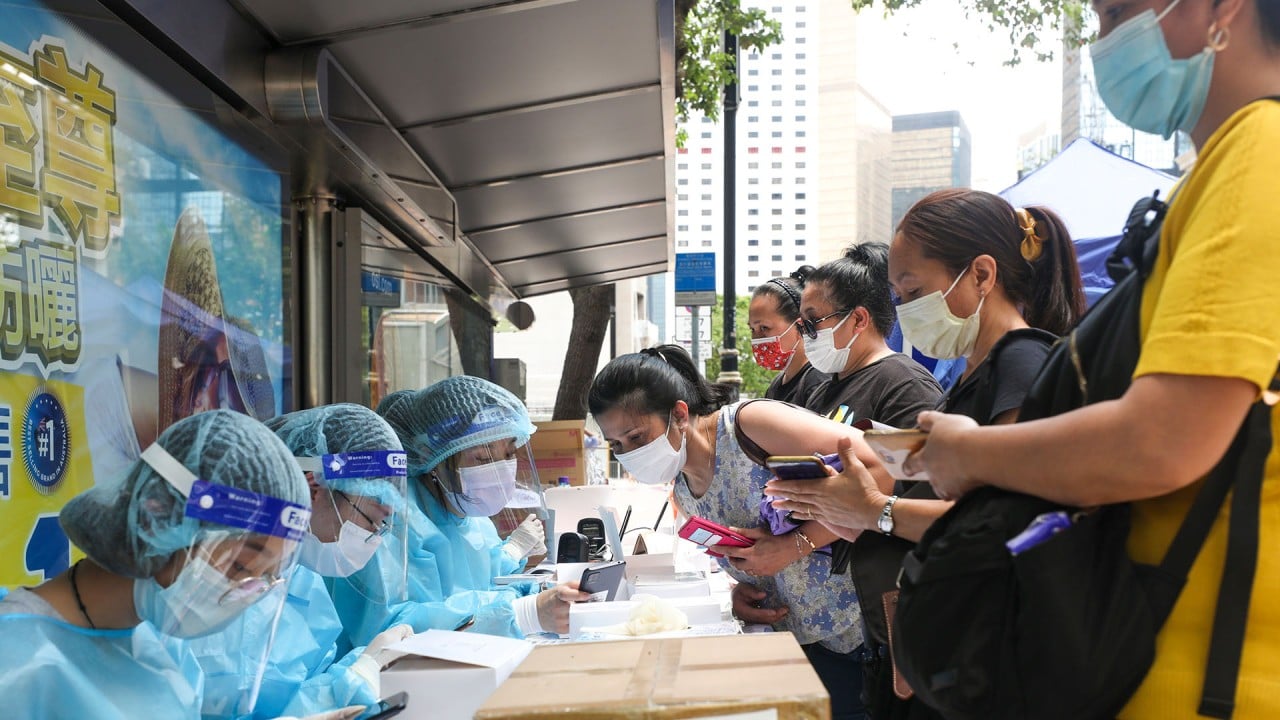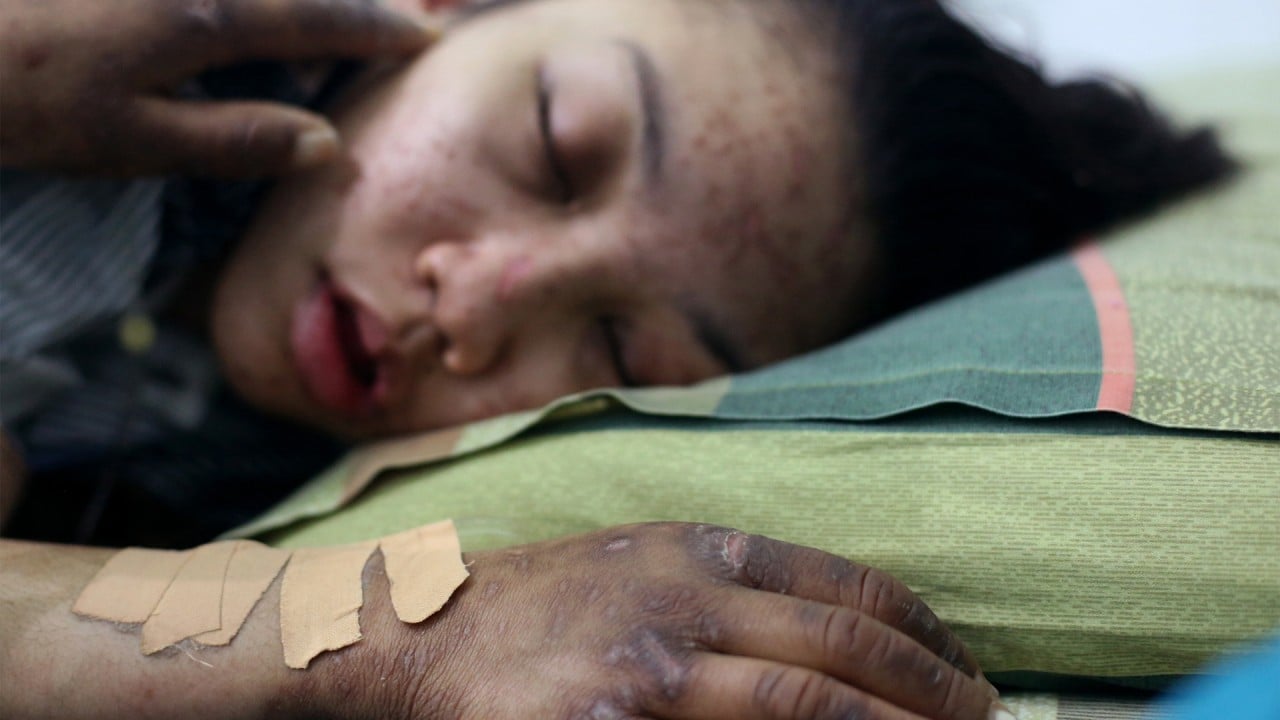
Don’t treat helpers as scapegoats for Hong Kong’s struggling vaccine drive
- Officious justifications for why singling out foreign domestic helpers should not be considered discriminatory are far from convincing
- Instead of asking employers to ‘encourage and assist’ helpers to get vaccinated, the government should focus on getting the local population to sign up
Officials seemed blithely unaware of the irony that the timing of the testing order meant over 100,000 had to spend hours on a hot Labour Day on Saturday waiting in seemingly endless queues to get tested during a “holiday” meant to honour workers.

03:08
Hong Kong domestic helpers slam ‘discriminatory’ Covid-19 rules
It is said foreign domestic helpers have chosen to work in Hong Kong and are not permanent residents. Thus, they should accept government policy decisions uncomplainingly. But this group cannot choose their status.
The government also asked employers to “encourage and assist” foreign domestic helpers to be vaccinated. But what officials should be focusing on is how to get the local population itself vaccinated.
The Indonesian and Philippine consulates have been models of responsibility, undertaking campaigns to convince their compatriots to be vaccinated (and, before that, to engage in safe social distancing during holidays).

03:04
From Erwiana Sulistyaningsih to Baby Jane Allas, abuse of foreign domestic helpers in Hong Kong prompts calls for better protection
This is not to say there has not been some progress. Advocacy groups have played a key role in bringing everyday racism towards helpers to the public’s attention and have taken up the cause of wronged helpers as best they can.
Even Hong Kong cinema has highlighted the issue, with the 2018 award-winning movie Still Human starring Anthony Wong, a paraplegic, who overcomes the widespread prejudice in the city to gain respect and admiration for his helper, played by Hong Kong-based Filipina actress Crisel Consunji.
Despite low wages and often grim working conditions, being a helper is for many a ticket to the middle class, including paying for their children’s education and building houses in their home countries.
That this leads many of the women to leave children and spouses behind to earn money for a better life for their families is even more reason for them to be treated with respect and dignity. With childcare and care for the elderly largely “outsourced” by government policy to the helpers, they keep Hong Kong running.
Helpers cannot be treated as scapegoats as the Hong Kong government continues to search for a strategy to encourage the local population to get vaccinated while working to keep new mutant strains in check. This is just the latest episode in the too often ignoble treatment of this hardworking and invaluable migrant group.
Mark R. Thompson is director of the Southeast Asia Research Centre, City University of Hong Kong

